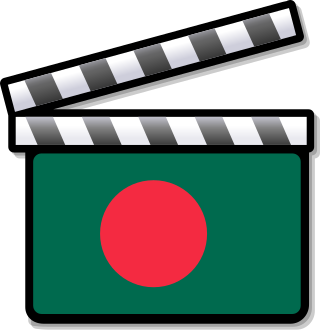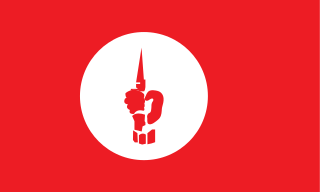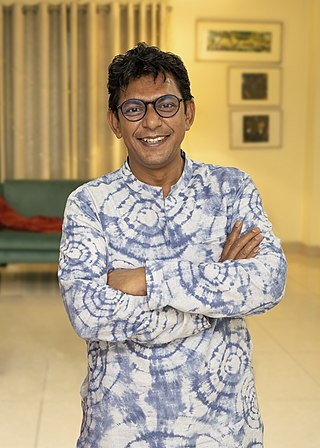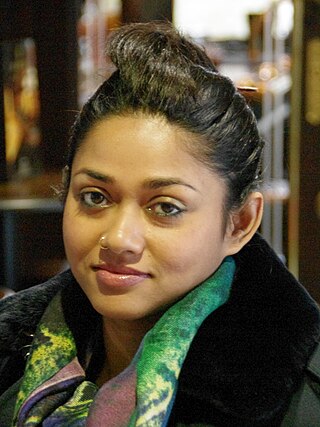
Sheikh Mujibur Rahman, popularly known by the honorific prefix Bangabandhu was a Bangladeshi politician, revolutionary, statesman, activist and diarist. As a politician, Mujib had held continuous positions as president or prime minister from April 1971 until his assassination in August 1975: as president from 1971 to 1972 and briefly from 1975 until his death, and as prime minister from 1972 to 1975. Mujib successfully led the Bangladeshi independence movement and restored the Bengali sovereignty after over two centuries following the Battle of Plassey in 1757, for which he is honoured as the 'Father of the Nation' in Bangladesh. In 2011, the fifteenth constitutional amendment in Bangladesh referred to Sheikh Mujib as the Father of the Nation who declared independence; these references were enshrined in the fifth, sixth, and seventh schedules of the constitution. His Bengali nationalist ideology, socio-political theories, and political doctrines are sometimes called Mujibism.

Victory Day is a national holiday in Bangladesh celebrated on 16 December to commemorate the defeat of the Pakistan Armed Forces in the Bangladesh Liberation War in 1971 and the Independence of Bangladesh. It commemorates the Pakistani Instrument of Surrender, wherein the commander of the Pakistani Forces, General AAK Niazi, surrendered to the Mukti Bahini and their Indian allies, ending the nine-month Bangladesh Liberation War and 1971 Bangladesh genocide and marking the official secession of East Pakistan to become the new state of Bangladesh.

Bangladesh–India relations are the bilateral relations between the People's Republic of Bangladesh and the Republic of India, both of which are South Asian neighbours. Diplomatic relations between the two countries formally began in 1971 with India's recognition of an independent Bangladesh following India helping Bangladesh secure its independence during the Bangladesh Liberation War against Pakistan. On 6 December, Bangladesh and India celebrate Friendship Day commemorating India's recognition of Bangladesh and the continued friendship between the two countries.

The Cinema of Bangladesh is a diverse and vibrant entity, consisting of films produced across various regions, each contributing its unique linguistic and cultural perspective. Beyond the dominant Dhaka based Bengali-language film industry Dhallywood', which is a portmanteau of "Dhaka" and "Hollywood", Bangladesh is home to cinema in several other languages and dialects. For instance, Chakma cinema from Bandarban, Garo cinema from Sherpur, Meitei and Sylheti cinema from Sylhet, Chatgaiya cinema from Chattogram. These regional cinemas play a crucial role in preserving and promoting the linguistic and cultural heritage of the country. The dominant style of Bangladeshi cinema is melodramatic cinema, which developed from 1947 to 1990 and characterizes most films to this day. Cinema was introduced in Bangladesh in 1898 by the Bradford Bioscope Company, credited to have arranged the first film release in Bangladesh. Between 1913 and 1914, the first production company, Picture House, was opened. A 1928 short silent film titled Sukumari was the first Bengali-produced film in the region. The first full-length film, The Last Kiss, was released in 1931.

The 7th March Speech of Bangabandhu, or the 7/3 Speech, was a public speech given by Sheikh Mujibur Rahman, the Founding Father of Bangladesh on 7 March 1971 at the Ramna Race Course in Dhaka to a gathering of over two million (2,000,000) people. It was delivered during a period of escalating tensions between East Pakistan and the powerful political and military establishment of West Pakistan. In the speech, Bangabandhu informally declared the independence of Bangladesh, proclaiming: "The struggle this time, is a struggle for our liberty. The struggle this time, is a struggle for our independence." He announced a civil disobedience movement in the province, calling for "every house to turn into a fortress".

Mustafa Monwar is a Bangladeshi artist. He is a painter, sculptor, radio performer and professor of fine arts. He is currently the chairman of Bangladesh Shishu Academy. He was awarded Ekushey Padak in 2004 by the Government of Bangladesh.

The Mukti Bahini, also known as the Bangladesh Forces, was the guerrilla resistance movement consisting of the Bangladeshi military, paramilitary and civilians during the Bangladesh Liberation War that transformed East Pakistan into Bangladesh in 1971. They were initially called the Mukti Fauj.

Akash Ar Mati is a 1959 black and white film directed by Fateh Lohani and produced by Film Development Corporation (FDC). It was the first sound feature produced in East Pakistan including post-production, though like Mukh O Mukhosh, the first Bengali-language film made in East Pakistan, it used some cast and crew from the West Bengal film industry.
Bangladesh National Film Award for Best Male Playback Singer is the highest award for male film playback singers in Bangladesh. The award was first presented in 1975,

Bangladesh National Film Award for Best Actor is the highest award for film acting in Bangladesh.
Bangladesh National Film Award for Best Music Direction is the highest award for music direction in Bangladeshi film.

National Film Award for Best Director is the highest award for film directors in Bangladesh, presented annually at Bangladesh National Film Awards ceremony by the Ministry of Information. It is given in honour of a film director who has exhibited excellence directing in Bangladeshi cinema. Since 1975, the award is given annually except in 1981, 1998 and 2003. It is presented by the President of Bangladesh at a ceremony held in Dhaka.
The Bangladesh National Award for Best Film is one of the categories in the National Film Awards presented annually by the Department of Films and Publications, the organisation set up by Ministry of Information in Bangladesh. It is the highest award for films in Bangladesh. This award goes to the producers of the film and is the only category in a year. The award comprises a medal, a certificate, and a cash prize of ৳50,000.
Bangladesh National Film Award for Best Supporting Actor is the highest award for actors in a supporting role in Bangladesh.
Bangladesh National Film Award for Best Supporting Actress is the highest award for film actresses in a supporting role in Bangladesh.
Pijush Bandyopadhyay is a Bangladeshi stage, television and film actor. He is a former managing director of Bangladesh Film Development Corporation (BFDC). Bandyopadhyay is also the CEO of the privately owned television channel Ekushey Television.
The Bangladesh National Film Award for Best Choreography is one of the highest film awards in Bangladesh. Since 1992, the awards have been given in the category of best choreography. The first award winner was Amir Hossain Babu. He and Masum Babul has won most awards in this category.

The Bangladesh National Film Award for Best Music Composition is the highest award for music composition in Bangladeshi film.
The Bangladesh National Film Award for Lifetime Achievement is one of the most prestigious film awards given in Bangladesh. Since 2009, awards have been given in the category.
Bangladesh National Film Award for Best Child Artist is one of the most prestigious film awards given in Bangladesh. Since 1977, awards have been given in the category of Child Artist. Master Adnan was the first awardee of this category for child artist of the film Megher Okek Rong in 1976. Three times this award achieved by Prarthona Fardeen Dighi and Azad Rahman Shakil also gained two times.











